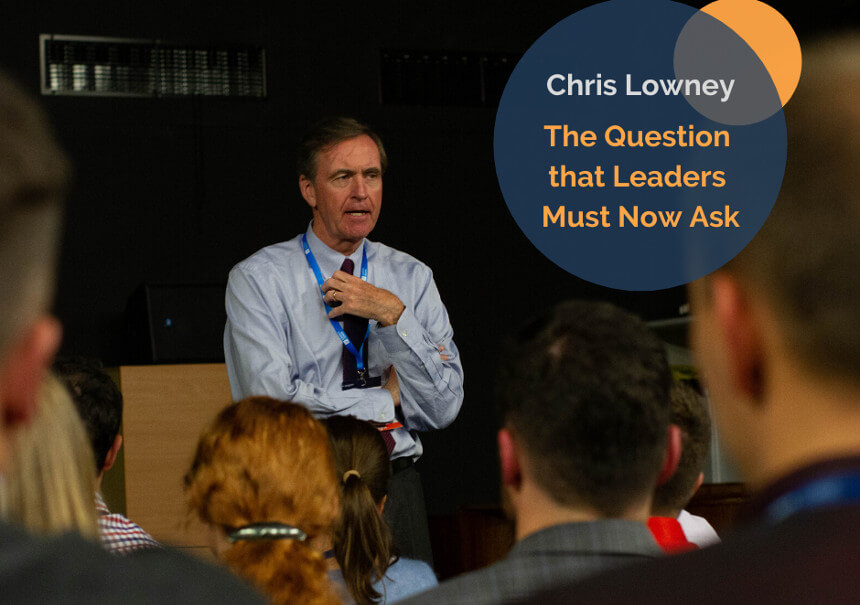As I write, the Coronavirus crisis is blossoming, and no one can predict whether it will be raging (or quiescent) by the time you read this essay.
Either way, Coronavirus confronts leaders with a vital question that remains relevant whether or not Coronavirus afflicts us: What am I doing to win the confidence, respect, and loyal cooperation of my team members?
I’ve borrowed this phrase –“winning respect and loyal cooperation”—from a definition of leadership long used by the U.S. Air Force. Too often, we managers assume that our team members should respect us. Our management style implicitly proclaims, “Hey, subordinates: I am the boss; I give orders. You dutifully fulfil them.”
But great leaders don’t assume respect and cooperation; they win it, they earn it. We earn respect and confidence in many ways: by our intelligence, experience, track record of success, and ability to solve the problems that confront our subordinates. Above all, we win respect and loyal cooperation by demonstrating genuine concern for subordinates’ dignity and potential. For example, we give them opportunities to grow and develop; nurture their career progress; and create a supportive workplace that offers a satisfactory work-life balance.
Coronavirus (indeed, any crisis) makes this fundamental leadership task of wining confidence and respect vastly more complicated and difficult. Managers may have to take painful actions: imposing furloughs or pay cuts, or asking team members to assume added or unfamiliar responsibilities.
Such decisions, though understandable and even necessary, will invariably stress (and even distress) our team members. Thus, at such moments, we have to remind ourselves of the fundamental question: How am I winning the respect, confidence, and loyal cooperation of my teams?
Let me mention two (of very many) approaches that leaders can keep in mind during Coronavirus, or any other crisis:
If I ask my team to make sacrifices, am I bearing any sacrifice myself?
New York’s world-famous Metropolitan Opera decided to postpone performances during the Coronavirus crisis. Just imagine how many ushers, cleaning staff, backstage crews, chorus singers and others suddenly found themselves out of work. What a sacrifice was asked of them! But the Opera’s head, Mr. Peter Gelb, didn’t exempt himself from the sacrifice he asked of these other workers: Mr. Gelb announced that he would take no pay whatsoever during the shutdown period. Did that put any money in the pockets of ushers and maintenance workers? No, but you can be sure that the boss’s willingness to sacrifice alongside his workers at least won their respect and goodwill; it lessened any resentment or cynicism they might have felt toward their boss or organization.
Am I taking an extra step to demonstrate genuine concern for my team members?
American universities closed their campuses during the crisis, scattering students from campus to their homes. One university, determined to demonstrate continued care for students, resolved that faculty or staff members would call every one of their 5,000 students personally, offering good wishes to all and support or counseling to the few who might be troubled. It’s such a simple, obvious step: shame on any of our own organizations who do not take equivalent outreach steps at times of crisis. We win respect and cooperation not by sending a general email to employees expressing concern; we win it by proactively finding ways to reach out in support.
One final thought: The easiest way for managers to perceive how to win support and confidence is by turning the question around, that is, what behaviors and attitudes in a leader would win your own confidence and respect right now? Ask yourself that question, jot down a few of your answers, and you will have given yourself a wonderful “playbook” to guide you as you manage your own team through whatever crises the world may present.
Chris Lowney
CHRIS LOWNEY, a one time Jesuit seminarian, later served as a Managing Director of JP Morgan & Co in Tokyo, Singapore, London, and New York
before leaving the firm in 2001. Since then, he has authored six books, including the bestselling Heroic Leadership, which has been translated into eleven languages and is on the recommended reading list of the Commandant of the US Marine Corps. He has also authored Pope Francis: Why He Leads the Way He Leads. His most recent work is Make Today Matter: Ten Habits for a Better Life (and World), which won a 2018 Independent Press Award. Chris currently chairs the board of CHI, one of America’s largest hospital systems, with more than 100 hospitals and US$ 14 Billion in annual revenue.



